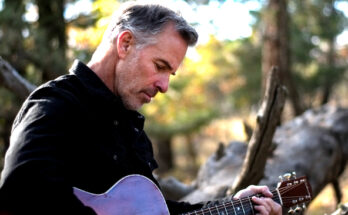Award-winning Canadian singer-songwriterAlex Runions is celebrating his new album, “Above the Clouds and On the Ground”, which was released on March 7thand is available on all digital streaming platforms. Powered by the producing talents of WCMA winnerChris Burke-Gaffney (MacKenzie Porter, Chantal Kreviazuk), “Above the Clouds and On the Ground” is the third album from the Saskatoon-based artist, but it marksa purposefuldeparture from the familiar commercial country soundthat defined his past recordsand earned him national recognition across Canada
Alex, you’ve had an incredible 15-year journey in music, and your hometown of Kipling, Saskatchewan even honored you with a billboard! How does it feel to have such a strong connection with your roots and your community?
It feels amazing. The community has been so supportive throughout my entire career. I’ve played many shows back home throughout the years and there has always been support. I loved growing up in Kipling and I’m always proud to say that is where I’m from.
I will mention that the first time they brought up the idea of putting the billboard up in my honour, I was taken aback and felt undeserving of it but it was also very touching to me that they felt proud. I feel like a lot of my life has been trying to be accepted by my peers and a lot of people back home, so that felt like some type of acceptance. I’m grateful to the community for their support.
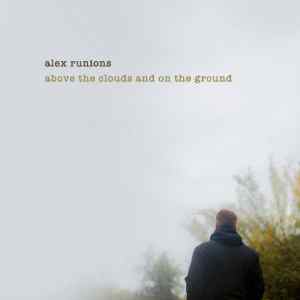
Your debut album in 2009 was a major stepping stone, produced by the talented Bart McKay. What were some of the key lessons or experiences you took away from working on that first project?
Bart is one of the best producers around. He is an amazing person and we have had many hours in the studio together.
Recording my first project with him was crucial in setting the foundation of my recording career. Without having someone who is so professional in your corner, you’re not setting yourself up for success. With Bart, I was setting myself up for success. I’ve always surrounded myself with people who I believe are more talented than me in order to give me the motivation to raise the bar for myself. Back then, I’d never had a truly professional recording experience but Bart provided me with that.
One thing that I’ll note is that I was extremely unprepared. I didn’t have a focus in mind, I didn’t know what to expect, and I truly didn’t understand the costs that were involved. Out of that 10-song debut album, there may be three songs that really stood out. I didn’t have any kind of marketing team or public relations team – not even a design team. My brother built my website and my sister took my professional promo photos for that album. That’s just how it was then.
If I took anything away from it, it would be to have professionals on your side and be prepared, especially for an album. Make sure it is focused and you have a goal, which I did not at the time. I just knew I wanted to sing and write songs.
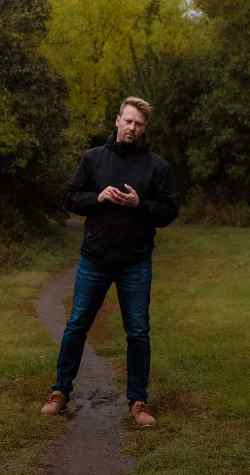
In 2013, you were named “The Next Big Thing” by Big Dog 92.7 and Astral Media. How did this recognition impact your career and push you to the next level?
Competitions can be a strange thing, sometimes. I found that the recognition is like a feather in your cap that you can use to move forward in your career. It’s like winning an industry award. They help you and your credibility. I believe that that’s what that competition did.
As a result of it, I performed on the main stage at a major country festival in front of many people, so that helps just to get you in front of people so they can see and hear you on a bigger level. Overall, I remember that evening very well and I was elated to have the approval of my peers. This seems to be a pattern here.
You’ve had multiple charting singles like “Passenger Seat,” “FM Dial,” and “Little Bit of Sunshine.” Which of your songs do you feel best represents you as an artist and why?
From my earlier releases, I feel that a song I wrote called “South of the City” is the one that best represents me. It walks a fine line between what I’ve done in the past and where I truly wanted to go as an artist if we’re just looking at the songs themselves. It also walked the line of being unique while appealing to a mass audience. It’s the most representative of me in my previous music career.
Over the last three to four years, I would say the most representative of me would be my song called “Settling Up”. Interestingly enough, David Leask was a co-writer on both “Settling Up” and “South of the City”.
It’s a difficult question to answer because every song has such a special place in my heart for its own reasons. “Settling Up” represents who I am today and my outlook on life. It is a cornerstone of my new album and it’s the type of music that I’m proud to write today and it’s the message that I’m trying to convey with the hopes that other people we’ll connect with it.
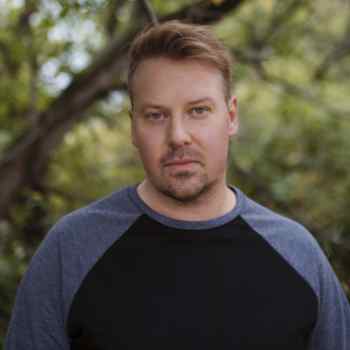
Your collaboration with Dean Kush and JJ Voss on “Just Watch Me” had a powerful impact, especially with its connection to fundraising for the Canadian Cancer Society. What was it like to use your music for such a meaningful cause?
It was an incredible feeling for me because I’d never experienced a song having such an impact on people.
“Just Watch Me” was written about a friend of ours who was battling cancer. Diane lived longer than she was expected, she was very strong and she was a great supporter of all three of us. The song was inspired by her courageousness, but we also mentioned along the way how everybody fights their own battles, so it is a song for everyone. People rallied around the song including the Canadian Cancer Society, which showed me for the first time how much a song can inspire others.
Prior to that, I was writing songs for my own project based on my experiences which were mostly relationships and having a good time. I was 20. I’ve been impacted by music my entire life obviously, but I think it hit me differently than my friends who weren’t songwriters. So, this project with Dean and JJ really opened my eyes and it was a very special feeling to have so many people reach out and let us know what the song meant to them.
You received multiple nominations from the Saskatchewan Country Music Association (SCMA) and even won awards like Fan’s Choice and Entertainer of the Year in 2016. How do these recognitions influence your approach to performing and creating new music?
I believe that recognition gives me the confidence to continue along. If my music has spoken to people, it makes me feel legitimate as an artist.
I think so many of us go through our careers with a big fraud complex. Even in my 40s, I almost feel it more than I did back in my 20s. In creating new music now, the impact that those awards had on me is somewhat minimal, only because my current sound is quite different than it was back then.
I won those awards when I had a game plan, I was focused, and I had much more experience in the industry. I worked very hard from the first album in 2009 until the second album in 2015. I think the awards are a direct representation of that effort. You make your own luck. Those awards only drove me to push harder and continue to write better songs.
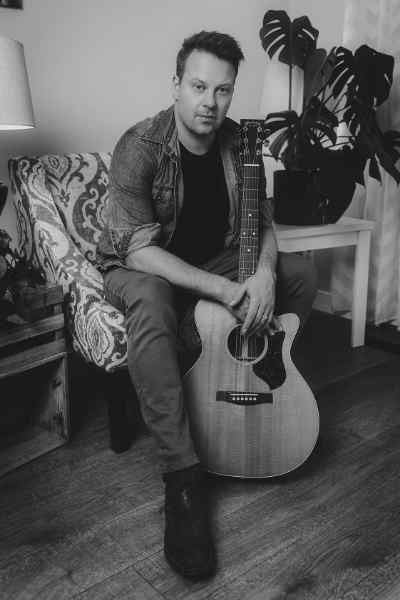
Over the years, you’ve played some iconic venues like Big Valley Jamboree and the Grey Cup. Which live performance stands out the most for you, and what makes it unforgettable?
The performance that always stands out to me the most is the Craven Country Jamboree, which is now named Saskatchewan Country Thunder. My band and I had been playing constantly throughout that summer in the months leading up to it.
My first single, “Little Bit of Sunshine”, had been played lots on the radio. The organizers booked us as the last act of the Saturday night right after Dallas Smith. There were about 10,000 people there and the band was hyped up to play, I was excited to play and by that time, we were a well-oiled machine because we’d been playing so much. I will never forget looking in the crowd and people singing along to my original songs. What a wonderful feeling.
In 2020, you teamed up with Bart McKay again for the summer single “Take It Out On Me.” What was it like reuniting with him, and how did this collaboration evolve compared to your earlier work?
Bart and I had such a long history together, so I was excited to record another single with him. His studio was a little newer, the musicians were slightly different, but other than that, not a whole lot had changed through those sessions. We got to hang out like old friends and create music together, which was amazing.
He did many things on that song that took it to the next level. I remember sending it to one of the writers after we recorded it. He held a high position in a publishing company, and he was so excited for the song. He couldn’t believe how good it sounded. I think that is a testament to Bart’s professionalism and capabilities. Bart has always been able to keep up on the current style of music, so “Take It Out On Me” sounded slightly different than the old projects we worked on – in a good way.
You’ve recently embraced a new artistic focus that blends country with Americana and roots music. Can you tell us more about this shift in your sound and how it reflects your personal growth?
Definitely.
I think that my personal growth has allowed me to write songs now that I’ve always wanted to write, free of the constraints of modern radio style music.
My approach came from a different place – for the first time in my writing career, I wasn’t trying to impress anybody, I was trying to write songs that meant something to me, that are relatable to other people, and that sound nice to the ears.
I wanted to say something in these songs that didn’t necessarily always leave the listener with some resolution. A sad song is just a sad song. I didn’t necessarily want to include a relationship element in every single song, which seems to be the theme in many. I didn’t want to glorify drinking alcohol, since I became sober five years ago. I wanted to write about the struggles and the joys of life.
It’s been a very volatile trip working on this album, taking risks and chances, but I am thrilled to have done this project the way that I wanted to. There was a vision, and it completely came to life the way I dreamt it would.
Your new album, Above the Clouds and On the Ground, has been released. What can fans expect from this new project, and how does it represent the next chapter in your musical journey?
Listeners can expect a change in the lyrical content, some interesting vocal melodies, and new arrangements that you wouldn’t hear in my old music. This represents just the start. It feels like a new beginning for me, and I plan to continue moving forward writing this type of music.
With Above the Clouds and On the Ground marking a shift away from your past commercial country sound, what inspired this creative departure, and how did working with Chris Burke-Gaffney help bring this new direction to life?
I think age had a lot to do with the new direction. I feel like somewhere in between the last album and this album, I grew up. I got sober, I got married, have a daughter, and love my life. I think in the past, I was chasing something that didn’t really mean much. I look back at my past work and I am proud of what I have done, but it doesn’t represent who I am anymore.
I spoke with Chris when I started writing for this album because I know he is a great songwriter. As we chatted more, he asked if he could produce the album because Americana is in his realm of expertise. As the discussions continued, it was clear that he was the right producer. His arrangements and his input on all of the songs including his writing is second to none. He truly understood the project and the focus and brought it to life. This album would not be what it is without him, I truly believe that, and I am truly grateful for his contributions to it.
This album reflects some major personal milestones for you, including marriage, fatherhood, and sobriety. How did these life experiences influence the themes and storytelling in the new songs?
Every song on the album, even the ones that were written prior to those specific events, still embodies the themes of what I have been wanting to convey and my new approach to storytelling through my music.
Having built a successful career with multiple accolades and performances at iconic events like the Grey Cup and Big Valley Jamboree, how do you see Above the Clouds and On the Ground representing the next chapter in your evolution as an artist?
I think that’s it’s a bit of a rebirth for me. It’s a new start. I almost feel that a lot of the old accolades can’t really apply to this new approach to my music and to my career. In some ways I feel that they are separate. The new album is a true representative of me as an artist and who I am as a person.
Social Links:
Instagram:@AlexRunions
Facebook:@AlexRunionsMusic
TikTok:@alexrunions
X:@AlexRunions
